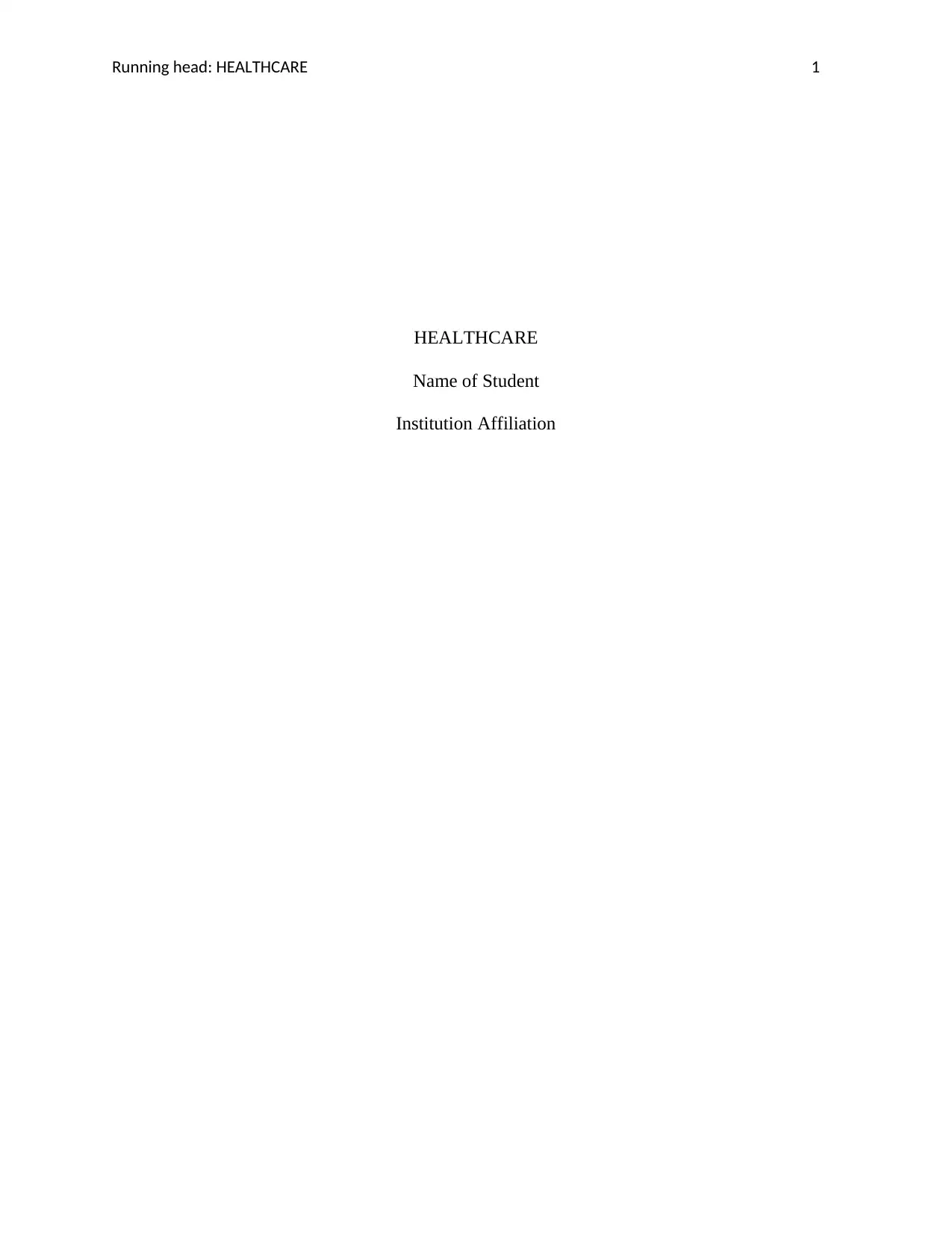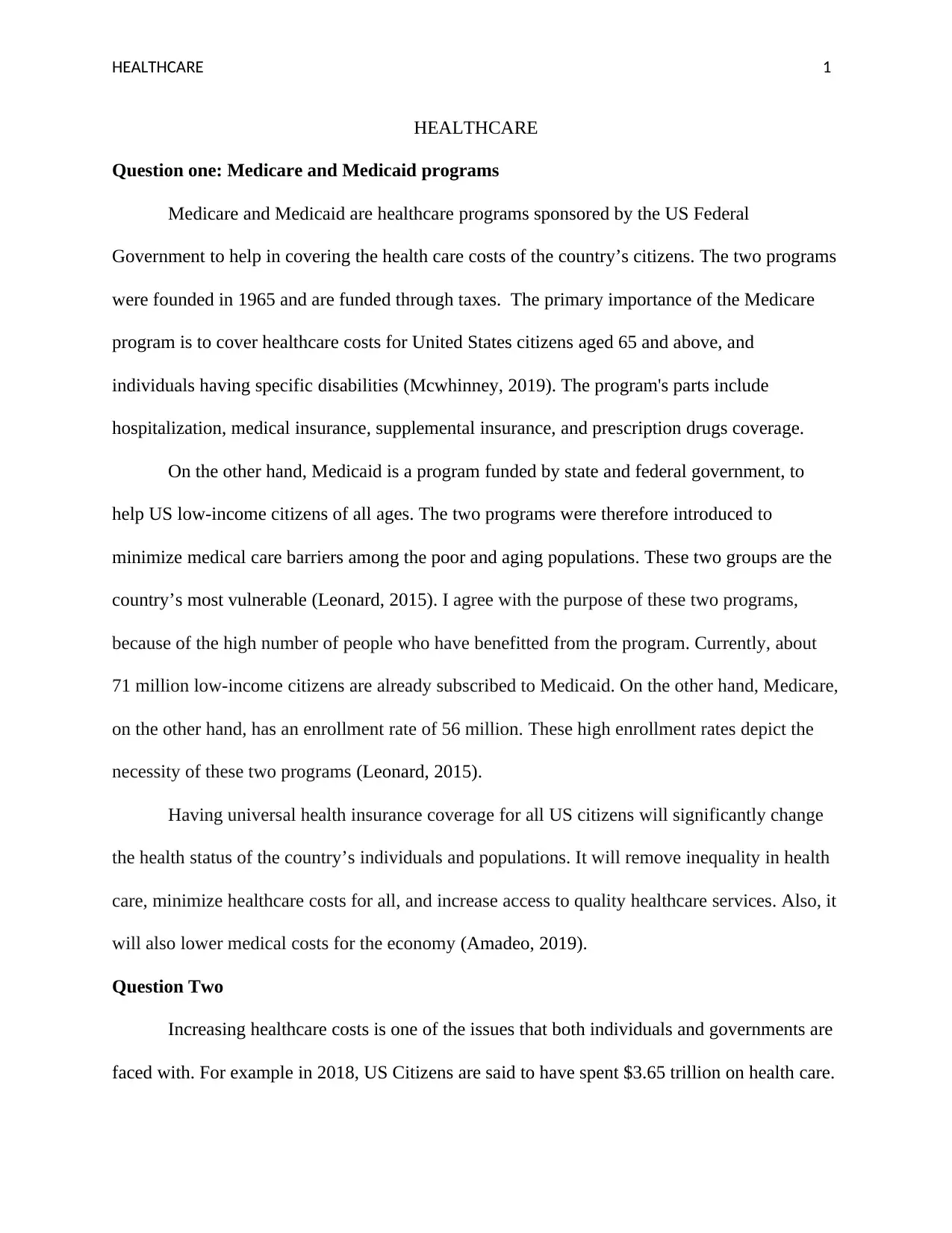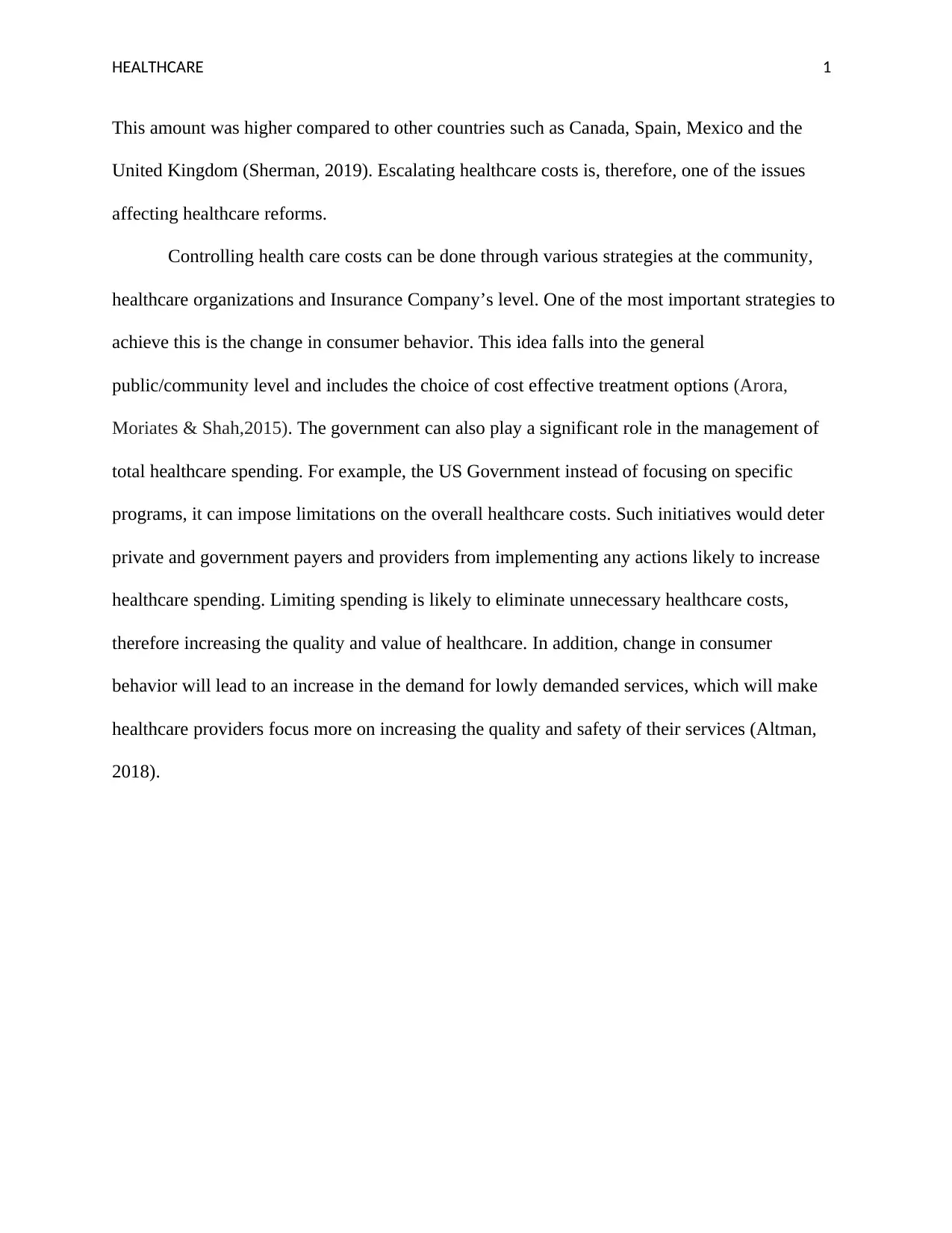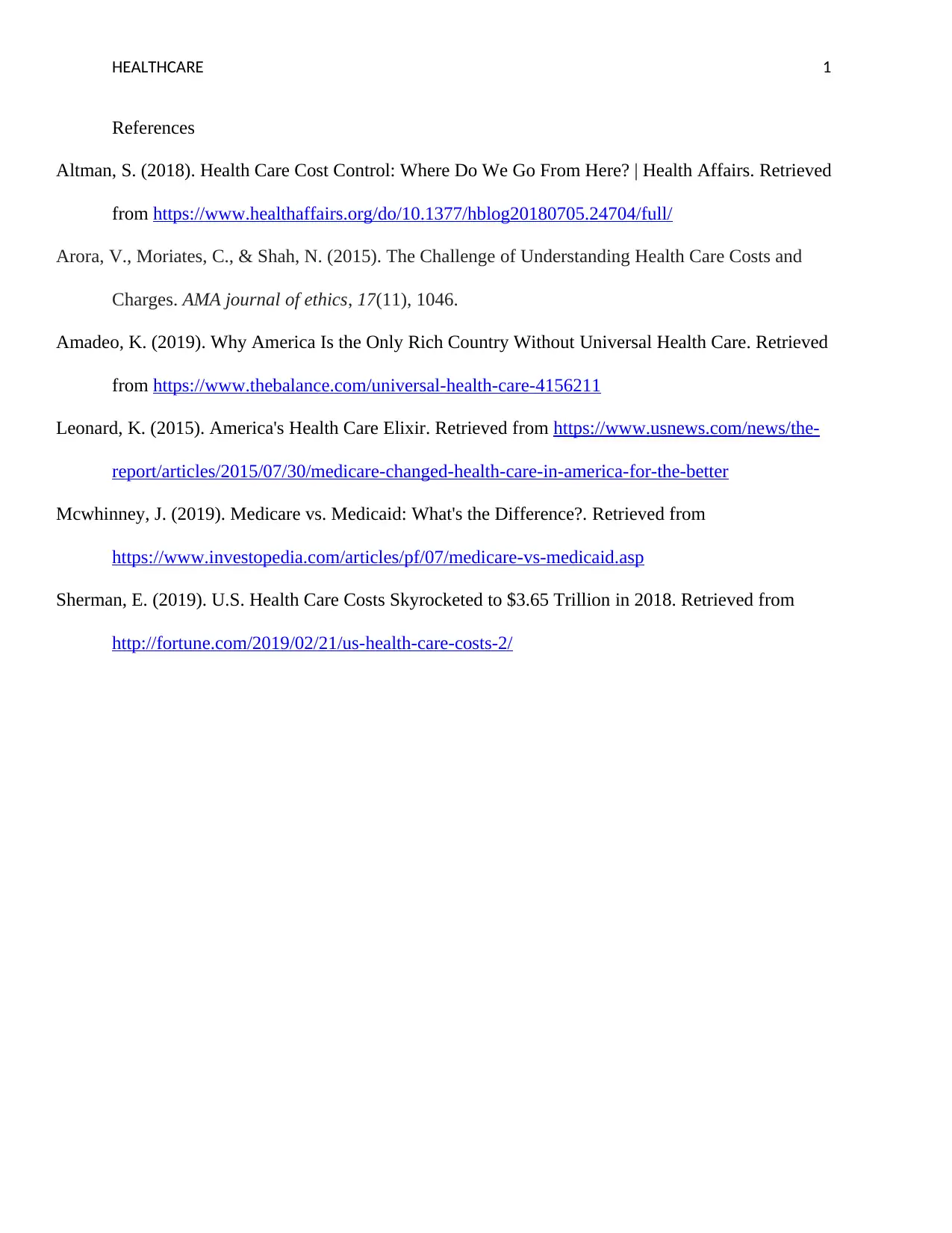A Comparative Analysis of Medicare and Medicaid Healthcare Programs
VerifiedAdded on 2023/01/23
|4
|729
|42
Homework Assignment
AI Summary
This assignment analyzes the Medicare and Medicaid programs, two critical components of the US healthcare system. The first question explores the purpose and impact of these programs, emphasizing their role in providing healthcare coverage for the elderly, disabled, and low-income citizens. The analysis highlights the high enrollment rates, indicating the necessity of these programs in addressing healthcare needs. The assignment also discusses the potential benefits of universal health insurance coverage, including reduced healthcare costs and improved access to quality services. The second part of the assignment addresses the issue of increasing healthcare costs in the US, comparing them to other countries and outlining strategies for cost control. These strategies include changes in consumer behavior, government limitations on healthcare spending, and the potential for increased demand for efficient healthcare services. The assignment uses references from various sources to support the arguments.
1 out of 4











![[object Object]](/_next/static/media/star-bottom.7253800d.svg)